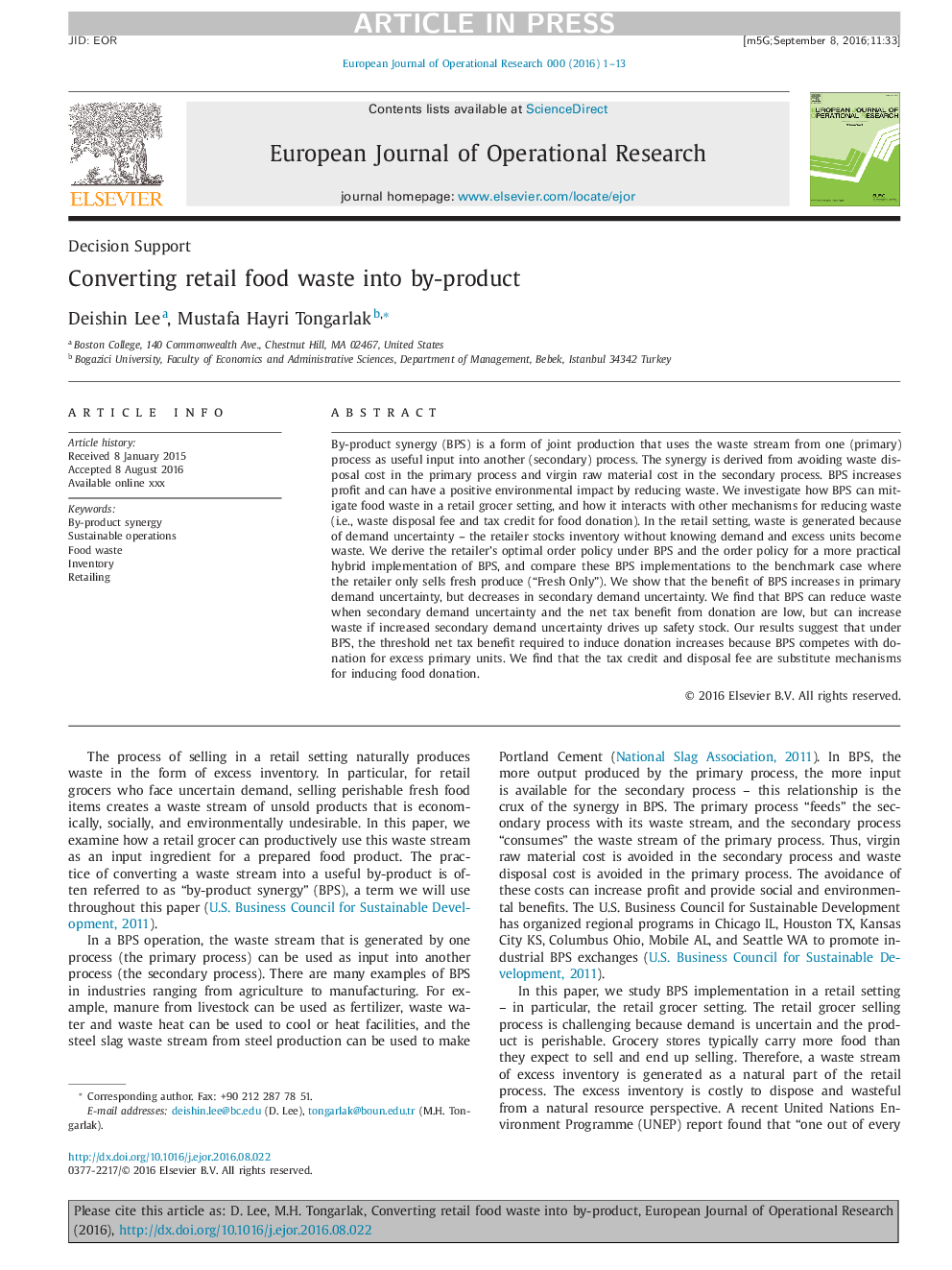| Article ID | Journal | Published Year | Pages | File Type |
|---|---|---|---|---|
| 4960039 | European Journal of Operational Research | 2017 | 13 Pages |
Abstract
By-product synergy (BPS) is a form of joint production that uses the waste stream from one (primary) process as useful input into another (secondary) process. The synergy is derived from avoiding waste disposal cost in the primary process and virgin raw material cost in the secondary process. BPS increases profit and can have a positive environmental impact by reducing waste. We investigate how BPS can mitigate food waste in a retail grocer setting, and how it interacts with other mechanisms for reducing waste (i.e., waste disposal fee and tax credit for food donation). In the retail setting, waste is generated because of demand uncertainty - the retailer stocks inventory without knowing demand and excess units become waste. We derive the retailer's optimal order policy under BPS and the order policy for a more practical hybrid implementation of BPS, and compare these BPS implementations to the benchmark case where the retailer only sells fresh produce (“Fresh Only”). We show that the benefit of BPS increases in primary demand uncertainty, but decreases in secondary demand uncertainty. We find that BPS can reduce waste when secondary demand uncertainty and the net tax benefit from donation are low, but can increase waste if increased secondary demand uncertainty drives up safety stock. Our results suggest that under BPS, the threshold net tax benefit required to induce donation increases because BPS competes with donation for excess primary units. We find that the tax credit and disposal fee are substitute mechanisms for inducing food donation.
Related Topics
Physical Sciences and Engineering
Computer Science
Computer Science (General)
Authors
Deishin Lee, Mustafa Hayri Tongarlak,
